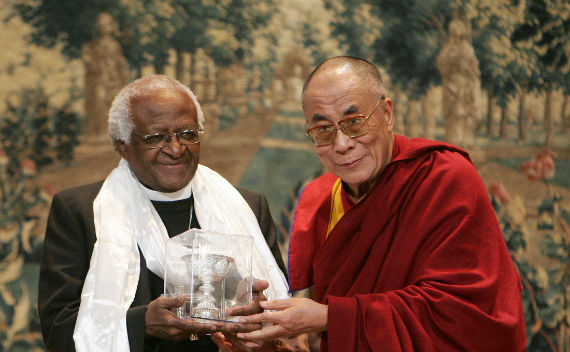China, South Africa, and the Dalai Lama
More on:

The Zuma administration’s apparently ham-fisted response to the Dalai Lama’s visa application to attend Archbishop Desmond Tutu’s eightieth birthday celebration is generating accusations that Pretoria is unduly subordinating itself to Beijing. While officials are citing technical reasons for the delay, the press and the opposition Democratic Alliance (DA) are saying that it is the result of Chinese pressure. On September 28, Archbishop Tutu and the Dalai Lama publicly criticized the Zuma administration’s failure to respond to the visa request. The Tibetan religious leader has visited South Africa before, in 1996, to meet with then President Nelson Mandela. At the time, China had pressured South Africa not to let the Dalai Lama come. That pressure was publicly rebuffed by the president.
The Dalai Lama applied at the South African High Commission in New Delhi, where adjudication normally takes five days. While it is the Department of Home Affairs that typically grants or denies a visa, it is the Department of International Relations and Cooperation that is responding to questions about this one, reflecting the application’s hot-potato status.
In a September 27 press release, the DA said that a decision on the Dalai Lama’s visa should be based on South Africa’s value of “ubuntu” (humanity), and that it was “unacceptable” for Pretoria to relinquish its sovereignty to Beijing on such a matter.
The visa drama is unfolding against the backdrop of Deputy President Kgalema Motlanthe’s three-day trip to China to strengthen mutual economic ties. And on September 29, the South African oil corporation PetroSA signed a memorandum of understanding with the China International United Petroleum & Chemicals Co., Ltd. (UNIPEC).
Once again, the Zuma government finds itself between a rock and a hard place. China has become an important economic partner of South Africa within the BRICS and is an important source of investment. Yet to deny a visa to the Dalai Lama, ostensibly because of Chinese pressure, not only violates the values of the anti-apartheid, democratic movement, it is disrespectful of Desmond Tutu and seemingly highlights how far Pretoria has strayed from the ideals of Nelson Mandela. As the opposition Democratic Alliance points out “…because China is not a democracy with a constitution that governs through the rule of law, we should not allow it to have an undue influence on matters that go to the heart of our political independence…”
More on:
 Online Store
Online Store